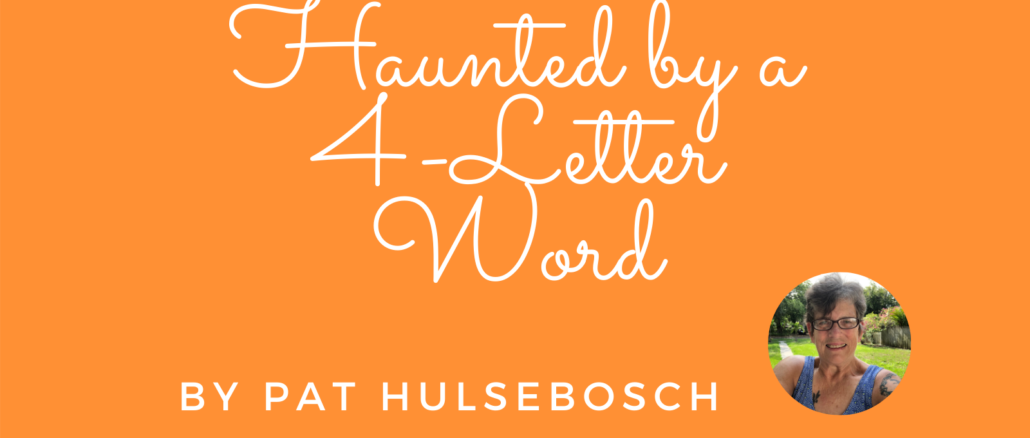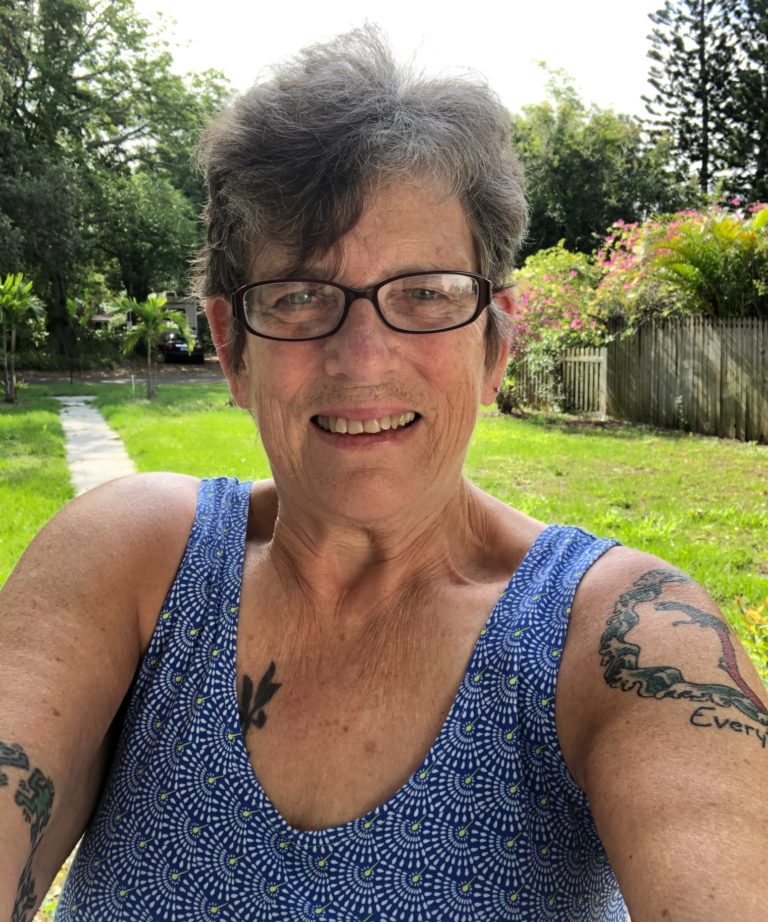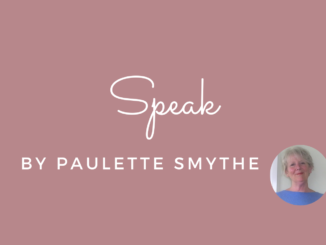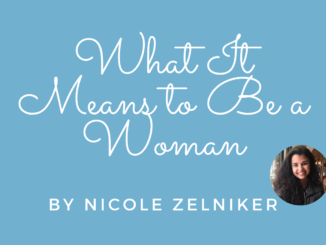
Wife is a four-letter word. One that once sang its siren’s song to me, then buffeted my life and offended me with broken promises. When I finally escaped wife’s toxic lure, I vowed never to be tempted by it again. Despite my promise, now 50 years after the last time I wore the word, I’m a wife once again: still occasionally troubled by the complexities of calling myself wife, while pleased to have found a new meaning in the word.
Last year I sat side-by-side in the 98 degree Miami sun, metal bleachers cutting into my thighs, peering through the high slatted fence surrounding the field. The Baseball Mom at my side turned to me to learn more about the person my son Sean had introduced as Liam’s grandmother.
“I hear you’re visiting from the D. C. area?” she asked. “Do you live on your own these days?”
I paused during a moment of indecision, as past and present wrestled for center stage, before replying.
“No, it’s me and my wife, Lynda.” I said. “I’m retired, but she’s still working, so she couldn’t make it down for the family visit this time.”
Baseball Mom’s eyebrows knitted for a minute as she digested my response.
“Well, it’s nice that you could be here,” she politely commented before looking away. My stomach tightened as I imagined a chain of thoughts bouncing through her head.
Wait, she has a wife.
Oh, that must mean she’s a lesbian.
Funny, she doesn’t look like a lesbian.
Why is she telling me this now?
If they just wouldn’t flaunt it would be fine?
And her son is so conservative! How could that be?
I wasn’t surprised as silence engulfed us while we sat watching the ninth inning wind down.
Each time I mention my partner, I mean wife, I slide into a fun-house mirror world where the role wife is simultaneously alluring and repelling, and often fraught with danger.
#
Bucky’s rugged good looks and boisterous sociability turned heads among the rec center crowd when he asked me to dance to Tommy James & the Shondells. His lean waist, broad shoulders, and calloused hands came from years of hard work – most of it in auto repair shops and construction sites. That he was 15 to my 13 made him a catch for this girl who had secretly feared she wasn’t worth noticing.
By day I inscribed the name of my beloved in my binder’s notebook paper. Calligraphic creativity abounded with hand-lettering embellished by tiny hearts, thorns, and tears. PH + BT, Alfred G., Mrs. Teeling. Soon the sheets were full, with a few saved at the end for algebraic equations or Shakespearean analyses. Daily passion and promises battled in diary entries from that year. “We went upstairs where I got real hot!!! But I wouldn’t let him enter me because I’m not going to do that anymore,” blared the pages, day after day. The nuns at my Catholic girls’ school had made it clear that birth control was taboo. But if, in the end, we got married, I knew all would be forgiven.
Intention was wedded to action when I saved my allowance to buy a cedar Lane Hope Chest to sit squarely at the foot of my bed, then proceeded to fill it with hand-embroidered tablecloths and fine china, bought piece-by-piece on the installment plan at Maas Brothers Department Store. “By the time you use these, they’ll all be out of style,” scoffed my father. Little did he know that I was determined to make it happen, sooner rather than later. Only then would I be able to check off wife from my list and move on.
Meanwhile, I bargained with the universe, offering to trade in my brains, if I could only become a wife. Thankfully, my wish was granted without the necessity of cognitive damage. No one was surprised, least of all me, when, after two years of BT + PH, I realized that I was pregnant.
“What do you plan to do?” asked my mother, when I broke the news to her from the back seat of her car on the drive home from Sacred Heart Academy.
“Get married, of course,” I replied with unswerving confidence.
#
I imagine for most girls their wedding is magical. My enthusiasm that early summer had been spent on passing the driver’s license exam just a few days earlier as I celebrated my 16th birthday. But my high school friends were excited about this novel event in their lives, knowing that their own nuptials were likely a decade away. The night before, my best friend Val called, singing into the phone.
“I’m getting married in the morning,” she began. “Ding dong, the bells are going to chime.”
“What?” I replied, confused.
“Just think, this will be the only time in your life you can sing that song,” she responded.
For me the small ceremony at my local parish, hurried as it was to avoid showing the transgressions of my adolescence, was perfunctory. “I now pronounce you man and wife,” echoed the words of the priest to the half-empty church dotted with a few close friends and family. The broad smile that lit my face that day was one of triumph and relief. It wasn’t until the next day, as I unpacked my frilly pink peignoir in a seedy motel a few hours from home, that I wondered about the trade-off I’d made. My heart sunk as I realized I’d rather be in the family station wagon headed north to Grandma Curtis’ for our annual summer vacation than here with my new husband on a honeymoon near the famed glass-bottomed boats of Ocala.
Returning home a few days later to our two-room, cinder block duplex, I eagerly anticipated my life as a wife. First stop was the bank where opening a checking account was an opportunity to bask in my role. I pointed to the name at the top of the request for checks.
“Mrs. Alfred G. Teeling,” I said, emphatically. “I’m his wife,” I added.
“Yes, dear, but you probably want your own name somewhere on that check,” nodded the elegant and efficient bank teller. I wasn’t sure I did.
Having proven to myself that I was marriage material, I dove into the daily tasks that I’d learned were the essence of the wife role including floor waxing, wall scrubbing, curtain sewing, and dusting every available surface. While growing up, I’d had a daily reprieve from these tasks.
“Just leave the bed,” my mother would say. “Your corners aren’t tight enough. I’ll just do it myself,” she added impatiently.
Now, by marrying, I finally had a chance to get the corners right.
But, having demonstrated that I was marriage material I was learning that actually being a wife was less enchanting than the Leave It To Beaver scenes I’d grown up on. While my friends agreed I was Wonder Woman as they flew to hitchhike in Europe, my father assured me this would be the end of my education, and my mother grimly left me to figure it all out. I had a lot to prove. And here, in my own household, nobody cared if the corners were right.
I cobbled together meals from hot dogs and cheap ground beef, racing off mid-day for university classes, while raising first one then two sons. “I hope you’re not giving Bucky any of those frozen dinner things,” scowled my father on a quick trip to town. I assured him I would never do that. I’d forgotten that in committing to being a wife I was committing to not only love but also honor and obey a husband who, unlike my seaman father, was a daily presence with a mind of his own. Bucky’s dirt bike weekends, rough-housing with the boys in a just-cleaned house, and angry rebuttals when I asked questions were unlike what I’d seen with my mother and father who barely saw each other. Although my performance looked award-winning to others, with the acting came the fear of discovery as the imposter that I was. Heated arguments with Bucky often ended with a slam of the door, or a leap from the car at a red light stop as I fantasized about escape. Within the hour I’d inevitably return home to my obligations.
Instead of cementing my self-confidence, my years as a young wife stirred a cauldron of self-doubt as my husband disdained the qualities I prided in myself. We disagreed about so much – especially his 1964 beige Taurus.
“That old car is just fine the way it is. It gets you to work every day. It doesn’t make sense for you to paint it metallic blue,” I insisted, thinking of the turbocharger and fuel injector he’d already installed. Thinking that customizing his car in our first month of marriage was a foolish priority.
“I can’t keep driving that thing like it is,” he rebutted. “I’m the laughing stock of the other guys,” clear on what was important to him.
“But you have no experience with auto-body work, much less painting cars,” I reminded him.
“You don’t know what you’re talking about,” he countered. “I’ll pull out those dents, fill in with Bondo, then figure out how to paint it. I can use Visqueen ‘round the carport to make a painting booth just like the shops.”
“Where’s the money coming from?” I continued, my voice rising in panic at the stubborn set of his jaw. “We have a baby on the way.”
“You know what your problem is, you think too much,” he said, ending the discussion as he walked away with his fists balled.
Then came the day in our seventh year of marriage, when Bucky taunted me one time too many.
“You think you can raise these boys without me?” he shouted, repeating his time-worn challenge in the midst of a heated argument.
This was the moment where I usually backed off and backed down, silenced by uncertainty. But not this time. My life as wife was coming to its inevitable conclusion as the second wave of feminism was dawning. Women and Marriage, an elective in the new Women’s Studies Department, had fired my belly and sparked a cinder of awareness that I had choices.
“Yeah, I think I can do that,” I blurted. I want you out.”
He left.
My stomach lurched as I wondered what I had done. Even while marching toward a different life with degree and profession, I remained moored to a vision that depended on marriage to a man. Balancing that was a fierce sense of the potency in my demand. Although Bucky would return periodically over the next year as we negotiated the end, I figured out how to survive on a teacher’s salary. I charged forward into a life that, at least for a while, I could call my own.
A do-it-yourself divorce kit that fit my non-existent budget gave me a way out of a marriage I shouldn’t have been in. I rendezvoused furtively with a staff person at the feminist law clinic to pick up the thick packet of instructions that I later poured over at home. Rollercoaster days were ahead as I felt the exhilaration of control wedded to uncertainty over the price I might pay for sovereignty over my life.
“You want to return to your own name after the divorce?” challenged the balding court officer as he reviewed my divorce documents.
“Yes, sir,” I replied, voice quaking.
“Why would you want to do that?” he asked, frowning as he stared at me. “That’s ridiculous. Your children’s last names will be different than yours. This is going to create all kinds of problems for them at school.”
“It’s what I want, sir,” I replied.
“From now on, any problems I have will be of my own creation,” I thought when, six months later, I opened the letter decreeing the divorce. Having been a wife and checked that box I could now go on.
#
In 1973 my twenties were coming to an end just as family roles were shifting. Divorced and widowed parents took center stage in The Brady Bunch and The Partridge Family. By the time I reached 30, ten years later, my sons had decided to live with their father and new step mother, and my association with wife receded into my past. With that ebbing came a sense of possibilities. Early one morning I climbed into a beat-up Dodge Dart loaded with all my possessions and hugged my mother goodbye.
“I think you were always meant to live in a big city, she murmured into my ear as I slammed the car door and drove off to Chicago.
Barely a year after the move, I broke with the fantasy that a knight in shining armor would protect and save me from the world, and launched into new identities that embraced self- affirmation and speaking my mind. I surrounded myself with strong, independent women. Women in the trades. Women artists. Women intellectuals. Women carving out a life of their own design. I began a doctoral program in Public Policy Analysis, moved into an old city loft – my first apartment of my own — came out as bisexual, and then fell in love with Lynda, a woman who’d been raised in the lesbian-feminist community.
Living outside the lines of society meant we could name our love that dare not speak its name whatever we wanted. For a while I was a girlfriend, but that seemed silly as I edged into my ‘40s. Lover never felt like the right term for the oh-so-serious Deaf social worker I lived with. Significant other was a bit too academic for my taste. We often relied on the English translation of the ASL sign for sweetie – two hands over the chest, fists bumped together, thumbs curling into the shape of a heart. Eventually, as our decades together went by, and we bought a house and raised children, partner seemed to make the most sense.
Lynda was limerence turned love as heady months together turned into years. Occasionally I was jerked back into the world as it was. A soft touch or tender hand-holding could mean assault, at least verbally.
“Dykes.” A loud voice came at us as we walked off the escalator and down U Street hand-in-hand during our early days in D.C.. And then, in what was likely the worst insult the caller could imagine, came, “Flat-ass dykes!” Although we laughed, it was a nervous laugh as we dropped hands and raised our guard wondering if there would be more.
Two years into the relationship, Lynda and I sat barefoot on the ground under an ancient oak tree at the Michigan Womyn’s Festival surrounded by the lesbians who were closest to us. The white cotton goddess gowns we wore had been gifted by a friend who worked in Sears lingerie, and our rings of intertwined branches had been bought that day from a festival craftswoman. In our vows, we pledged to listen and learn from each other, and to honor our differences as well as similarities.
“Here’s a photo of our commitment ceremony,” I said, as I leafed through photo albums a few years later with G.W., our five-year-old nephew.
“That’s sort of like a wedding,” I explained.
“Wedding, you mean like man and wife?” G.W. asked.
“Yeah, a little like man and wife,” I responded, chuckling at his extrapolation.
“If you’re like man and wife, who does the husband stuff, and who does the wife stuff?” he asked.
“I’m not sure,” I answered, mulling over his question before I continued. “What does a husband do and what does a wife do?”
“The husband yells and screams, and the wife cooks and cleans,” answered G.W., without a pause.
There it was, out of the mouth of a Millennial with professional parents, like a voice from the past, that familiar idea of family roles that I’d grown up with and was now so averse to. I laughed and thought a few minutes before responding as I thought about the freedoms queer life gave us.
“I think we each do a little of everything, G.W.. Sometimes I cook and clean, and sometimes Lynda cooks and cleans. Her favorite is vacuuming. Lynda does all the work outside, but I like to stay inside. And we each yell, sometimes, just a little.”
I thought how happy I was that I was queer and could never again become a wife.
#
In the political fervor of the ‘80s and ‘90s heated discussions excavated the oppression of previously taken-for-granted patriarchal institutions, including marriage. While some felt same-sex marriage was a deadly acceptance of mainstream norms, for many the fight for marriage equality became the centerpiece for LBGT rights. By 2015, 30 years after I’d first made a commitment to Lynda at the women’s festival, I once again had the option of becoming a wife.
“Sweetie,” I said to Lynda over coffee one morning. “Now that it’s legal for dykes to get married, would you go down to the county courthouse and find out what we would need to do —if we decided we wanted to be legally married?”
“We already had a ceremony at the festival,” she scoffed. “Our kids are grown. And we were already married on that ‘R Family Cruise,” she said, referring to the 15 minute impromptu ceremony a few years ago aboard a ship docked in Canada. “Why would we want to get married again?”
“Seems like a pointless hassle,” added my unsentimental, old-school lesbian, girlfriend/partner/sweetie.
Gaining steam, I mustered my best arguments, describing social security benefits and rental car rates. I added that it might be fun to have a wedding at our new progressive church. Thoughts of the hurried nuptials of my teens, our woodland Festival gathering, and the impromptu cruise ship ceremony flitted through my mind and were then replaced by a romantic vision of legal recognition through a true wedding in the community of friends we’d built over thirty years.
“Just ask them,” I pleaded. “We don’t need to do anything with that information, but it would be good to know.”
Sighing, she agreed to ask, adding the county building to her errands list for the day. Although it seemed likely to be irrelevant, I tucked our Canadian marriage certificate into her backpack, just in case.
“Oh, married in Canada?” the Court official asked for clarification. “Then you’re married in Maryland.” the official added, off-handedly, as she pulled out a blank Maryland license, stamped it with her official seal, slid it into a brown manila envelope, and handed it back to Lynda.
“We’re married, sweetie,” Lynda announced as I walked in the door that night. “You’re my wife,” she added. I paused, stunned at this unexpected news. I’d imagined our marriage as a poignant event with a party, not a return to the haunted role of wife.
50 years have passed since I glorified wife, claiming it as my reason for being. 43 years ago I walked away from that title, certain I’d never use it again. It’s been 38 years since Lynda and I made mutual commitments in the ferns beside our Festival tent, and 14 years since we ducked into a cruise ship lounge for a quickie Canadian wedding to show our daughter that lesbian love could be legit. Just 7 years ago, in 2013, I became a wife in Maryland and, two years later, in the United States.
For months after we received our signed and sealed license Lynda and I continued to refer to one another as sweetie. But with time, that, too changed. Wife, which had once seemed a simple solution, now has a richer, more complex meaning. Wife now means living intimately with a person with whom I share an avid interest in the most ordinary events of day-to-day life. But wife also means an abrupt revelation of queerness in a world where some are still coming to terms with LGBTQ folks. But, above all, rather than duty, wife finally means love.

Pat Hulsebosch
Pat Hulsebosch is a queer Pippi Longstocking wanna-be who writes stories about being a daughter, mother, sister, grandmother, and, now, in her sixth decade, a great-grandmother.
Since retiring from Gallaudet University four years ago, she’s found a passion in writing about a never-boring life of teaching and learning. Her work has appeared in literary journals including Columbia Journal, Lunch Ticket, Halfway Down the Stairs, Furious Gravity, Grace & Gravity, Vol. I, and The Washington Post. These days she bounces among family and wife in Florida, Chicago, and the DC Metro area.


